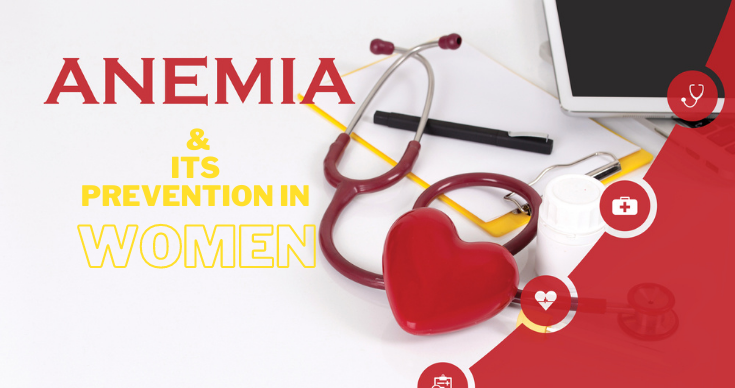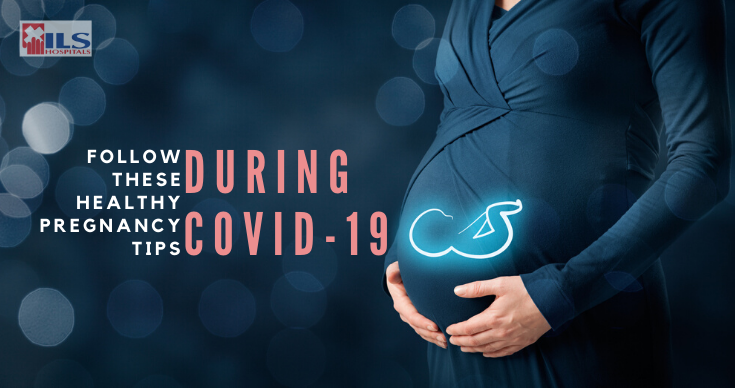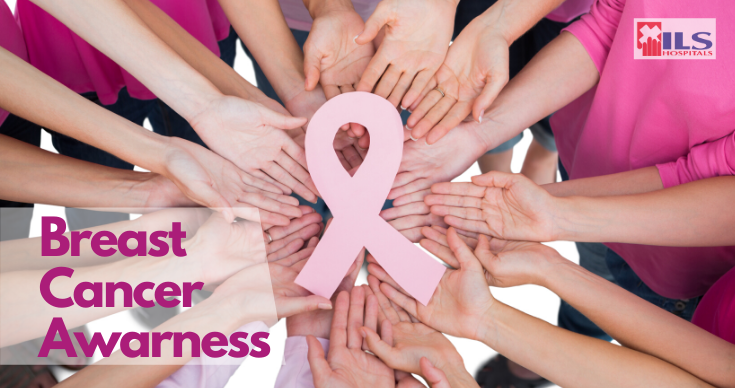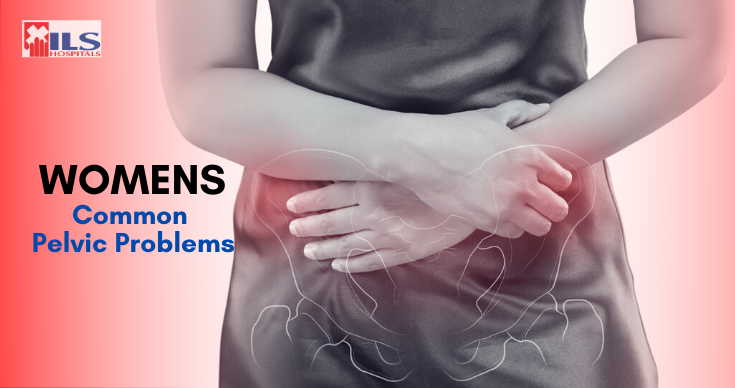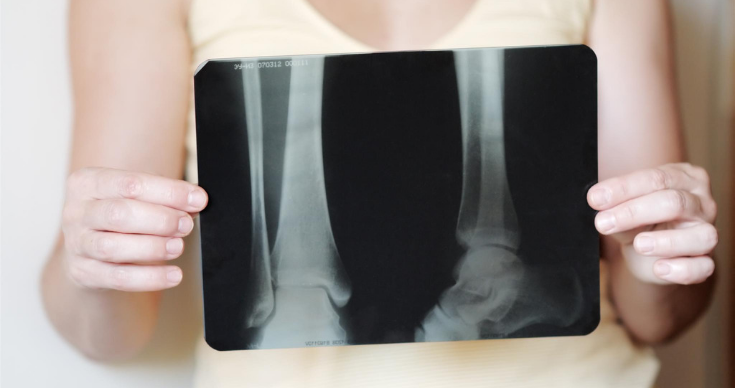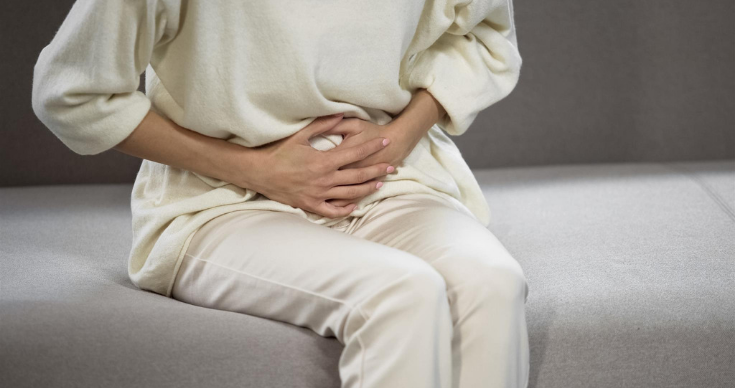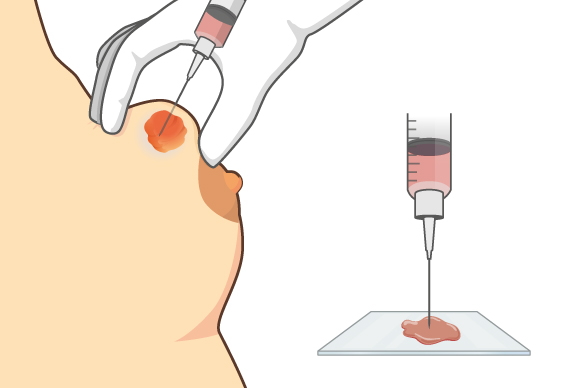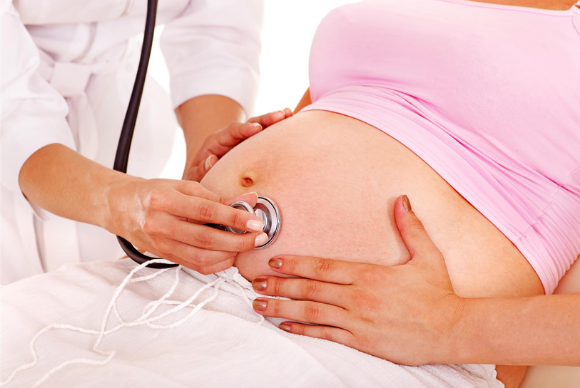Anemia And Its Prevention In Women
Anemia is a health condition in which the body does not make enough RBCs (red blood cells) or hemoglobin. Hemoglobin is an essential protein found in the blood that is responsible for giving blood its colour and it also helps in the transportation of oxygen throughout the body. When you have low hemoglobin, you have anemia, when you have anemia, you encounter symptoms, like fatigue and shortness of breath. Anemia can be mild to severe and short-term to even long-term.
Anemia is a serious health concern in our country, India. More than 50% of women in India under the age of 15-49 years are suffering from anemia. It is a matter of concern and we all must talk about it. The biggest question to ask is why women are more prone to suffer from anemia? As per health professionals working at some best hospitals in Kolkata, women are more vulnerable to suffer from iron deficiency anemia because of blood loss during menstruation, pregnancy, and post-childbirth. Mostly, in our country, more women are suffering and have been diagnosed with iron deficiency anemia, obviously, due to malnutrition or poor nutrition. Anemia can be easily diagnosed by a blood test or hemoglobin test and is treated by medications, blood transfusion, and lifestyle changes, all depending upon the severity and the type of anemia.
Today, ILS Hospitals, one of the best hospitals in Kolkata and Agartala will guide all women who are reading this blog on preventing this serious medical condition called anemia. So, to all women, carefully read and apply the following mentioned things in your life to never see the face of anemia.
Consume lots of iron-rich foods
Iron is crucial to avoid iron deficiency anemia. Consume iron-rich foods, like spinach, eggs, red meat, chicken liver, fish, peas, black beans, kidney beans, chickpeas, tofu, oysters, apples, banana, and pomegranates.
Get sufficient vitamin B12
Most patients with anemia have low vitamin B12 levels. Eat eggs, fish, chicken, mutton, milk, cheese, butter, fortified breakfast cereals, and so on.
Receive enough vitamin B9 or folate
Vitamin B9 or folate is extremely important for pregnant women. Consume foods that are rich in vitamin B9, such as peanuts, whole grains, eggs, fish, liver, leafy greens, citrus fruits, etc.
Include more vitamin C in your diet
Vitamin C helps in better absorption of iron. Have more tomatoes, bell peppers, oranges, lemons, papayas, strawberries, and so on.
Avoid drinking hot beverages along with meals
Ensure to not drink hot beverages – tea and coffee along with your meals as it hampers the iron-absorbing power of the body.
Take vitamin supplements
Sometimes diet cannot provide all the vital nutrients needed for the body. In that case, vitamin supplements are prescribed by the medical practitioner. Consult the doctor and ask him or her to prescribe you vitamin supplements if needed.
Get a complete body checkup to rule out other types of anemia
There are other types of anemia as well – sickle cell anemia, hemolytic anemia, etc. Get a complete body checkup from a reputed healthcare centre or hospital in Kolkata to rule out other types of anemia.
Visit ILS Hospitals, the leading hospital in Kolkata and Agartala to get accurate diagnoses and timely treatment for anemia.
How To Have A Healthy Pregnancy During This Covid-19 Situation
COVID-19 pandemic has become a medical emergency in all over the world. It is a very difficult time for all of us. It is more difficult for women who are pregnant during this crisis. But as ILS Hospitals always says, Do not Panic and Stay Alert, following this is the only remedy during this anxious situation.
Today ILS Hospitals, one of the best hospitals in Kolkata and Agartala will suggest the would-be mothers some tips to have a healthy pregnancy during this COVID-19 situation.
Eat a diet full of nutrients
A nutritious diet is the ultimate panacea for pregnant women. You need to consume healthy foods for your baby’s growth and development. Eat fruits, vegetables, legumes, lentils, eggs, seafood, chicken, dry fruits, etc.
Drink plenty of water
Do not ignore the importance of hydration. Drink plenty of filtered water every day. Use a hydration or water reminder app on your smartphone if you constantly forget to drink water.
Take an ample of rest
Your body is responsible for carrying two individuals. Surely, your body is dealing with a lot right now. To compensate for that, take a proper amount of rest every day.
Stay hygienic
Practice good hygiene at all rates. Wash your hands properly and frequently with a good liquid handwash. Use hand sanitizer with 70-90% alcohol and tissue papers while coughing and sneezing and dispose them off at once in a closed bin. Wear a mask and disposable gloves if you have to go out for any medical emergency and live in a well-sanitized environment.
Have a good mental health
Due to this long home quarantine, you might find yourself anxious and depressed which can affect your unborn baby’s well-being as well. Do not stress, watch less news, read good books, play board games with your husband or other family members, watch informative videos and practice meditation or light doctor recomended exercise.
Stay happy and stay safe at home. Visit a good obstetrician-gynaecologist for any medical emergency. ILS Hospitals in Agartala and Kolkata is always present to help you out.
Let’s Learn Ways To Effectively Prevent Breast Cancer
Breast Cancer is a kind of cancer that develops in the breast cells. It can happen due to various factors, like gender (females are at a higher risk of developing breast cancer), obesity, ageing, exposure to radiation, previous breast conditions, alcohol consumption and genetics.
Dear ladies, ILS Hospitals, the best hospital in Kolkata would like to bring forward preventive measures for breast cancer. But before we tell you the preventive tips for breast cancer, let’s know the symptoms of the same.
-
Swelling in the breast or breasts
-
Rashes and redness in the breast/s
-
Changes in breast anatomy
-
Changes in the nipples’ appearance
-
Pain in the breasts
-
Feeling of lumps or nodes in the breasts
-
Discharge from nipples.
Now, it’s time to know how to prevent and lower your chances of developing breast cancer.
1. Maintain a healthy BMI:
Being overweight or obese (especially after menopause) puts you at more risk of developing breast cancer. Excessive fat issues increase the estrogen levels which in turn makes you vulnerable to breast cancer. To prevent breast cancer, keep a healthy body weight or BMI (18.5-24.9).
2. Control your alcohol consumption:
As we all know, alcohol consumption is injurious to health. Did you know, alcohol is also a culprit behind breast cancer? Alcohol not only raises your estrogen levels but also damages the DNA in cells causing cancer. Avoid consumption of alcohol or at least minimize it.
3. Do physical activities:
If you live an inactive lifestyle, you invite several health issues. It has been found that women who did physical activities regularly had a lower risk of breast cancer. So, ditch the sedentary lifestyle and engage yourself in physical activities.
4. Stop smoking:
Despite numerous warnings on the cigarette packets, people still smoke. Apart from lung cancer and other serious health conditions, smoking is also responsible for causing breast cancer. Ladies, if you have this harmful habit, get rid of it today to protect yourself from breast cancer.
5. Self-examine your breasts:
Regular breast self-exam (once a month) should be encouraged as it helps early diagnosis of any abnormality. To perform a breast self-exam, stand in front of the mirror and observe your breasts. Check for redness, swelling, change in size and nipple discharge. It is always best to learn this self-diagnostic method from an expert gynaecologist.
You should also consult an experienced gynaecologist, whenever you’ve any queries regarding your gynaecological health. Visit ILS Hospitals in Kolkata and Agartala for any medical help.
How To Take Care Of Your Health If You Are A Woman
Dear women, you are an important part of our society. As a woman, your health and mental well-being is supreme.
ILS Hospitals, one of the best hospitals in Kolkata, would like to present some health tips every woman should follow for a healthy body and mind.
1. Eat a healthy diet:
We’ve heard this almost all the time because it’s a true fact. Women should include fruits, vegetables, leafy greens, poultry, seafood, dairy products, dry fruits, legumes, lentils and so on in their diet.
2. Stay hydrated:
Drinking water is unavoidable. Apart from drinking adequate water, you should also have healthy soups, juices, lassi, buttermilk, smoothies and so on. Milk is something all women must include in their daily routine. Have a glass of milk every night to get the dose of calcium and prevent insomnia.
3. Be physically active:
In a busy schedule, it’s difficult for some people to visit the gym and do other physical activities. However, being physically active is not difficult. Even a 10-minute-walk to your nearest park or maidan can help your body and mind. Try walking, running, yoga and even doing household chores for a fit body.
4. Abandon your bad habits:
Bad habits are hard to break but with determination and strong support system there’s a chance of quitting them forever. Some common bad habits are:
-
Smoking
-
Drug and alcohol abuse
-
Being unhygienic
-
Undereating or overeating
-
Consuming unhealthy and outside food
-
Constantly stressing over things
-
Being negative
-
Addiction to smartphones and other gadgets.
So, say goodbye to your bad habits!
5. Practice proper hygiene:
Maintaining hygiene has been taught to us from our school days. Here are some simple personal and feminine hygiene tips for all girls and women:
-
Brush and floss twice a day
-
Shower or bath once a day
-
Clean your vagina with warm water
-
Wash hands frequently
-
Wash your face at least twice a day
-
Shampoo and condition your hair once or twice a week
-
Keep your nails trimmed and tidy
-
Wear clean underwear and clothes
-
Change your sanitary products frequently
-
Live in a clean and hygienic environment.
6. Visit a medical professional regularly:
As a woman, gynaecologist is going to be your best friend. Visit a good gynaecologist and raise your concerns regarding your health. You should also ask the gynaecologist about multivitamin supplements and breast self-examination.
7. Be positive:
A positive mind is a healthy and happy mind. Do not take stress unnecessarily. Love and care for the ones around you and get the same in return. Stress and anxiety are called silent killers, avoid them completely. Seek professional therapy if you find yourself unable to deal with your current situation.
You can always visit ILS Hospitals in Kolkata and Agartala whenever needed. Our entire hospital team is there to help and support you.
5 Common Pelvic Problems Faced By Many Womens
Being a woman is not easy. Women have to deal with many gynaecological issues during their entire life. Here we will tell you about 5 common pelvic problems faced by a majority of women.
1. Urinary Tract Infection (UTI):
A common gynaecological problem faced by many women is Urinary tract infection or UTI which can infect any part of the urinary system (bladder kidneys, ureters and urethra). UTI is generally caused by bacteria but in some cases, viruses and fungi can also contribute to this situation. The symptoms of UTI are as follows:
-
Hematuria
-
Urinary urgency
-
Little or no urine
-
Foul-smelling urine
-
Dysuria or painful urination
-
Fever and chills
-
Pelvic pain.
Treatment involves antibiotics, antivirals, antifungal or antimycotic medication (depending on the causative agent).
2. Uterine Fibroids:
Uterine Fibroids are non-cancerous tumours that develop in the uterus usually during the childbearing years of a woman. They can be caused due to hormonal changes, family history of fibroids, obesity and early onset of puberty. The symptoms of fibroids depend on the size and number of tumours. Some symptoms associated with fibroids are as follows:
-
Heavy and prolonged menstruation
-
Severe menstrual cramps
-
Constipation
-
Frequent urination
-
Pain during sexual intercourse
-
Urinary retention or inability to empty the bladder
-
Pelvic pain and discomfort
-
Backache
-
Bloating
-
Abdominal swelling
-
Anaemia
-
Problems in conception and labour
-
Recurrent miscarriage.
Treatment: Medication and surgery including the advance minimally-invasive procedures.
3. Ovarian cyst:
Ovarian cysts are fluid-filled sacs that originate in the ovaries. They can occur because of hormonal problems, pregnancy, endometriosis, severe Pelvic inflammatory disease (PID). Ovarian cysts are painless and cause no major symptoms but can create problems if ruptured. Many times cysts go away on their own and don’t causes any symptoms. Some symptoms of this condition are as follows:
-
Nausea and Vomiting
-
Bloating
-
Severe pain in the abdomen
-
Pain and tenderness in the breasts
-
Abnormal and irregular bleeding
-
Severe pelvic pain
-
Dyspareunia or pain during sex.
Treatment: Medication, ovarian cystectomy, oophorectomy and hysterectomy (laparoscopic procedures can be performed).
4. Endometriosis:
Endometriosis is a condition in which the uterine lining, the endometrium, grows outside the uterus. You can get endometriosis if you suffer from retrograde menstruation and have problems in the immune system. Endometriosis can also be caused by genetics, hormones and certain surgeries. The symptoms related to endometriosis are as follows:
-
Dysmenorrhea or painful periods
-
Pain during or after sexual intercourse
-
Painful urination
-
Heavy intermenstrual bleeding
-
Constipation or diarrhoea
-
Bloating
-
Nausea
-
Infertility.
Treatment is either medication or surgery.
5. Pelvic Inflammatory Disease:
PID is a bacterial infection that affects the female reproductive organs, like uterus, fallopian tubes, and ovaries. The sexually transmitted bacteria enters from the vagina and cervix and makes its way to the uterus. The symptoms associated with PID include:
-
Pain in the lower abdomen
-
Vaginal discharge
-
Pain and bleeding during sexual intercourse
-
Fever
-
Pain and burning sensation while urination
-
Irregular menstruation.
Treatment includes antibiotics.
Visit ILS Hospitals in Kolkata and Agartala for a complete treatment from the best gynaecologists.
Make Faster Recovery And Wear Anything Confidently After Minimally Invasive Gynecological Surgery
Being a woman is hard in many aspects. You go through many phases in life and nurture not only yourself but also the lives of your loved ones. But when it comes to your health, many women are not even aware or concerned about it unless it becomes too severe. Many illnesses loom over women, particularly that require gynecological surgery. Many gynecologists in Kolkata often find that a lot of women do not prefer to undergo surgery and look for oral medicinal treatment instead even if a surgery is vital for them. There are 2 main reasons for the same, they assume –
- It will be painful and need much recovery time and they will not be able to fulfill their duties in personal and professional lives.
- It will leave big scares in their abdominal or pelvic region and thereby will make it look unattractive.
Today we will focus on the Minimally Invasive Gynecological Surgery (MIGS) and how it overcomes the Drawbacks of Open Surgery.
Gynecological surgery implies surgical treatment of the organs in the female reproductive system. It is done to address problems like uterine inconsistency, infertility, removing tumors (both benign and malignant) and carry out procedures like hysterectomy or tubal ligation.
Earlier all these procedures were carried out by making a large incision across the abdomen or pelvic region. It used to leave large scares throughout life. Though certain medication can help the stitch marks to fade over time, it still remains distinguishable and thus, many women feel embarrassed to wear sarees and lehengas after surgery.
Modern medical science has the perfect solution for the same, in the form of minimally invasive gynecological surgery. These surgeries are carried out through a few minute incisions made near the abdomen. Some special equipment, camera, and light sources are inserted inside the abdominal or pelvic cavity and the doctor carries out the surgery through the same. Once the procedure is over, the incisions are closed using stitches.
As the surgery does not expose the internal organs, it offers multiple advantages, such as
- Lesser risks of operation such as bleeding, infection, injury to the nearby organs
- Much lesser need for blood transfusion (almost nill)
- Lesser risks after the operation such as swelling and infection of the surgical site
- Less painful
- Early discharge from the hospital
- Faster recovery
- Much early resuming to daily life works
- Better aesthetic look of the abdominal/pelvic region as the procedure is almost scarless
So, in case you too are looking forward to having any gynecological surgery, come at ILS Hospitals, as we offer MIGS for a wide range of gynecological procedure.
For more information visit us now!
Why Women Are More Prone To Osteoporosis
There are many factors that make an individual susceptible to any particular disease. Often such factors can be smoking, drinking alcohol, aging, having some underlying illness and so on. As per many orthopedic experts, women are more susceptible than men, when it comes to osteoporosis. Let’s find out the reasons why women are more likely to have osteoporosis than men.
Osteoporosis is an orthopedic condition in which the bone becomes porous. As a result, eventually, it leads towards making them weak and brittle. It can easily lead to a fracture even due minor to mild trauma or accident.
There are mainly 2 reasons for women being more susceptible to have osteoporosis.
Bone Structure
Osteoporosis often happens due to certain factors that are prominent during childhood and adolescence. Women reach their peak of bone mass growth around age 18, for men it continues to grow around the age of 20. Moreover, women have smaller bone structure as compared to men, as a result, their bone mass density is lower than that of men. These factors make women more susceptible to have orthopedic conditions.
Role Of Estrogen
The female hormone, estrogen is the main reason for the likelihood of osteoporosis in women. Estrogen keeps the fertility cycles in check. Simultaneously, it also keeps the bones healthy and strong and things work well until the time of menopause. After menopause, the hormonal level drops significantly and act as a big factor to cause low bone density.
The reason being, women keep on losing bone density after menopause. In fact, as per gynecologists, women who have menopause at a younger age are at even more risk of the same. In contrast, women having their cycles at an earlier age or the ones using contraceptive (with estrogen) often have healthier bone mass.
Moreover, having irregular periods or start having them at a much later age are also some reasons for lower bone mass than others. Apart from these, having the ovaries removed can also cause lower bone mass.
Thus it can be concluded that women are at higher risk of developing osteoporosis and often other orthopedic conditions as well. As per studies, it has been found that one out of every 2 women above the age of 50 is likely to have osteoporosis. However, that does not mean, nothing can be done to address it. Regular exercise, intaking adequate vitamin D and calcium are highly beneficial to ensure a strong bone build-up. Osteoporosis is a disease that requires timely treatment to make sure it does not result in any severe complication.
At ILS Hospitals, we offer excellent orthopedic treatment and care for people who are enduring pain and discomfort for years. It’s time to address them effectively and lead a much healthier life ahead.
Common Gynecological Problems Faced by Women of Different Age Groups
Aging is a natural progression for both men and women and it helps them acquire new experience and expertise. However, it also brings new challenges to health-wise. Today, we are going to discuss what gynecological problems women go through, at different phases of life.
Gynecological Problems During Adolescence
1. Delayed Puberty
There is no fixed to start having periods, but if it does not starts by the age of 11, it is best to seek a doctor. Though many young girls start having a period at the age of 14 or so, lack of periods can also happen due to the absence of uterus, by birth. An expert gynecologist can verify the same and advice accordingly.
2. Menstrual Disorder
There can be several types of issues with the menstrual cycle. Heavy periods, scanty periods and irregular periods are most common. Mostly it can be addressed well with a healthy diet, active lifestyle and taking adequate rest in between. However, it is still best to keep track of it and seek consultation from a gynecologist.
3. White Discharge
Though white discharge is very common among women of childbearing age, it can be a bit heavy and troublesome for young girls. Maintaining proper hygiene is required, along with doctor’s advice, if needed.
4. Abnormal Facial Hair
During a young age, many young girls develop facial hair due to hormonal disbalance, which can be devastating for her self-image. Often it gets better with age, but still, it is wise to seek an expert opinion, cause many a time, it does require treatment to fix it.
Gynecological Problems During Adult Age
1. Infertility
The inability to have a successful natural conception or to carry a pregnancy is termed as infertility. Often it is due to some lifestyle factor such as smoking, overweight which can be resolved. However, infertility often occurs due to some more severe hormonal or gynecological conditions, which requires extensive fertility treatment from expert doctors.
2. PCOS
Polycystic Ovary Syndrome (PCOS) is one of the most common hormonal issues among women of childbearing age. It becomes more prominent and problematic during this phase. It starts to interfere with everyday life and other gynecological aspects of the body. Thankfully, it can be treated effectively with medication, lifestyle change, and surgery, if required.
Read more: 5 Facts About PCOS Every Women Should Be Aware Of
Gynecological Problems During Later Age
1. Menopause
It is the natural decline and eventually cessation of reproductive life. Though it is inevitable for every woman, it brings a hard time for many women, either physically, or emotionally, or both. It can be easily treated and thus, women should consider it if they feel they need help.
2. Gynecological Cancer
Gynecological cancers are yet another problem among older age grouped women. Cancer of Breasts & Uterus is more commonly diagnosed in older women as compared to the younger groups. Often it is due to aging and sadly, many a time, it is because of ignoring symptoms of the same for years. Either way, it should be treated form an expert gynecologist or oncologist at the earliest.
All the women are advised to keep track of their health routine, especially after attaining puberty. Availing well-women health check-up package once every 2-3 years is an excellent way of ensuring the same. Seek medical help if any alarming symptoms appear. Stay healthy, and always remember-
“There is a pain in being a woman, yes, but there is pride in it, too”.
-Mary Pauline Lowry
FNAC – How It Works And Helps Towards Detection Of Breast Cancer
Breast cancer is a leading cause of death among women all around the globe. The scenario is equally frightening in Indian as well. The detection of malignancy in the breasts happens in later stages in India, and that is why breast cancer treatment is not very effective for many women.
Timely screening can confirm whether or not it is a case of cancer and thereby, the suitable treatment can be pursued, if needed.
Gynecologists recommend that every woman above the age of 30 should pay attention to any changes that occur in their breasts. Let’s understand about one such crucial screening, the FNAC, in details.
What is FNAC?
FNAC stands for Fine Needle Aspiration Cytology. It is a diagnostic screening that can detect the malignancy in the breast tumor. It can also be used to aspirate a known cyst, by pricking and collecting fluid. It is done to remove the cyst completely or to relieve discomfort and pain that is quite common for large cysts.
How FNAC is carried out?
FNAC uses a thin needle to penetrate the breast tissue to reach the site of the tumor. The exact position of the cyst or tumor can be detected using ultrasonography and the needles are guided accordingly. It collects some cells or fluid as a sample. The sample collected is then sent to the laboratory to investigate its nature further.
This usually does not require any anesthesia, because even if the procedure requires pricking the breast with needles, the pain is bearable. However, it might require the same, if a solid system is concerned, which required multiple aspirations, in a single screening procedure.
How FNAC helps to detect breast cancer?
Prescribing an FNAC does NOT mean the doctor suspects breast cancer. In fact, mostly it is the opposite. Usually, when they come across any lump during a physical exam and suspect it to be a harmless, benign tumor, the first thing they recommend is the ultrasound and closely followed by FNAC.
The reason for recommending USG as foremost screening is simply to get the exact location of the lump. The FNAC test simply rules out the possibility of cancer. In case, it shows hints of malignancy, a biopsy is then recommended, which confirm the presence and type of malignancy.
So, why does the gynaecologist, does not recommend biopsy in the first go itself? Well, simply because FNAC is less invasive than a biopsy. A biopsy requires proper anesthesia as is a little more severe and sort of unnecessary for benign tumors.
What happens after FNAC confirms the nature of the tumor?
Well, if it shows malignancy, which is quite rare, the gynecologist is likely to refer the patient to an oncologist for advanced breast cancer treatment. In case its benign tumors, it can either be aspired to relived discomfort or left intact in the place (unless it projects any more trouble in the future) or it can be removed by surgery anyway.
For more information, if required it is wise to get in touch with a gynaecologist and discuss the possibilities.
5 Common Complications Faced By Pregnant Women
Carrying another life inside you is both a blessing as well as the most challenging task. Thankfully the expert gynecologist and obstetricians help you thoroughly for the same. In fact, maternity hospitals are all equipped to make this experience as comfortable and safe as possible. But there are certain complications that might make it difficult though. Here we present some complications that may arise during pregnancy.
1. Hypertension

It is also known as high blood pressure. It occurs when the blood flowing in the blood vessels exerts too much pressure. This happens when these vessels get narrowed due to some reason. This causes hindrance for the blood to reach the placenta (which provides oxygen and nutrition to the baby). This deprivation for long can cause a slower growth of the baby and can also uplift the chances of preterm labor.
2. Gestational Diabetes

It is a rather unique type of diabetes in which a pregnant woman, with no history of high blood sugar gets diagnosed with it. Even though most of the time gestational diabetes get resolves on its own, after childbirth, it uplifts the probability of several other complications during pregnancy and thus its constant treatment is required. Also, it makes the mother susceptible to diabetes in the future, so she should keep her sugar level in check.
3. Preeclampsia

It is a rather serious condition which has quite severe effects. Its causes are often unknown, but it can be a more likely scenario in case of the first pregnancy or in the case the mothers is obese or is older than 35, or carrying multiple babies or have suffered from the same condition in her previous pregnancy.
It is characterized by exceptionally high blood pressure and in case if it is left untreated it can cause organ damage.
4. Placenta Previa

As already discussed, placenta nourishes your baby before birth. The placenta is usually attached to the top of the uterus and in case of this complication, it slides down. It can cover the cervix (right on the birth canal) either partially or totally. Needless to say, it can cause a hindrance during childbirth and can make it strained labor for the mother and somewhat risky for the baby. It can be diagnosed accurately during a pre-natal scan. Extensive treatment under an expert obstetrician is crucial for such cases.
5. Severe Vomiting and Nausea

Morning sickness is quite common among expecting mother. It is characterized by feeling nausea and voting in the early morning, particularly during the first trimester. Its severe form is called hyperemesis gravidarum and it causes extreme nausea and vomiting along with weight loss, dehydration, fainting and loss of appetite that often need extensive treatment in some maternity hospital.
Good prenatal care is highly recommended for every pregnant woman along with timely medication and prenatal screening. It can ensure that any pregnancy-related complications can be addressed and treated effectively on time. Come at ILS Hospitals to have a safe pregnancy and childbirth ahead.











